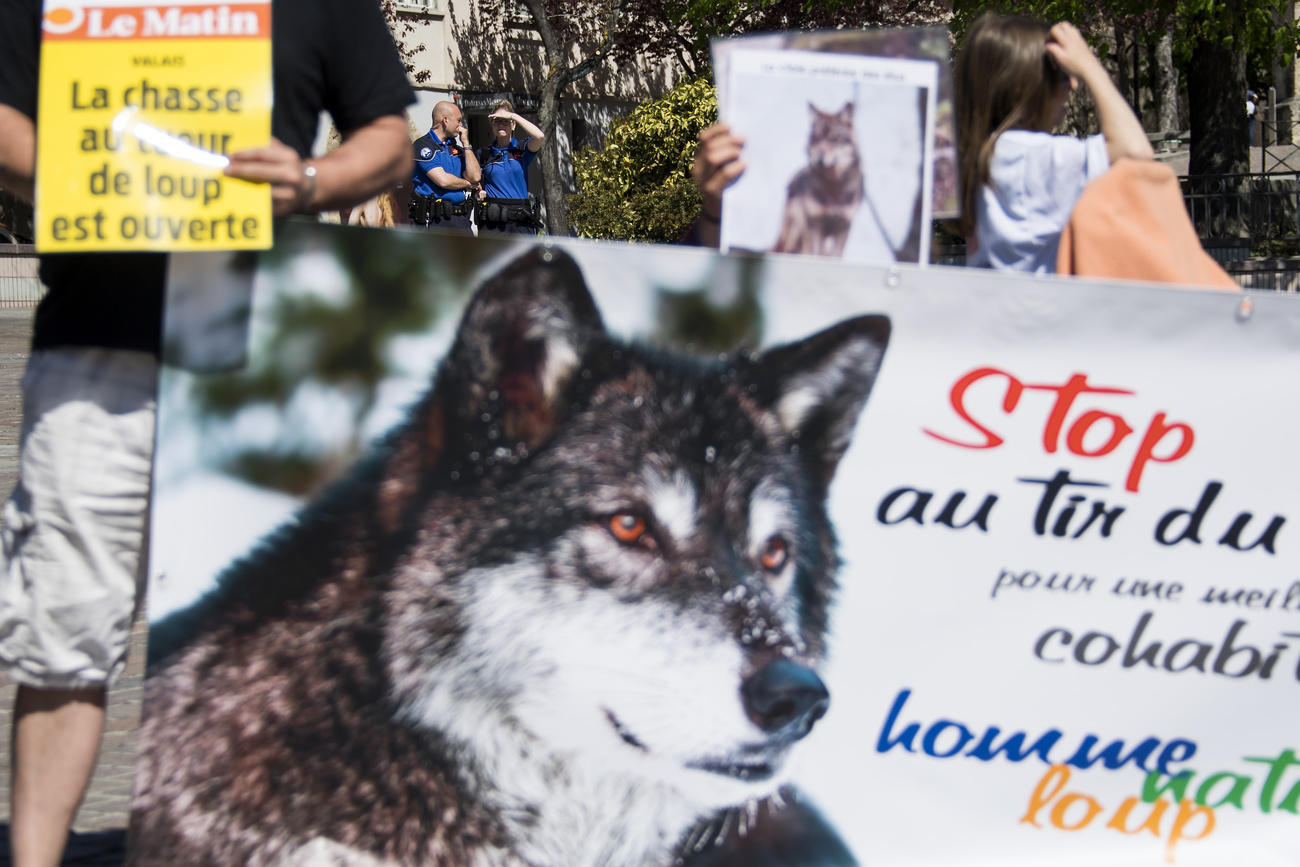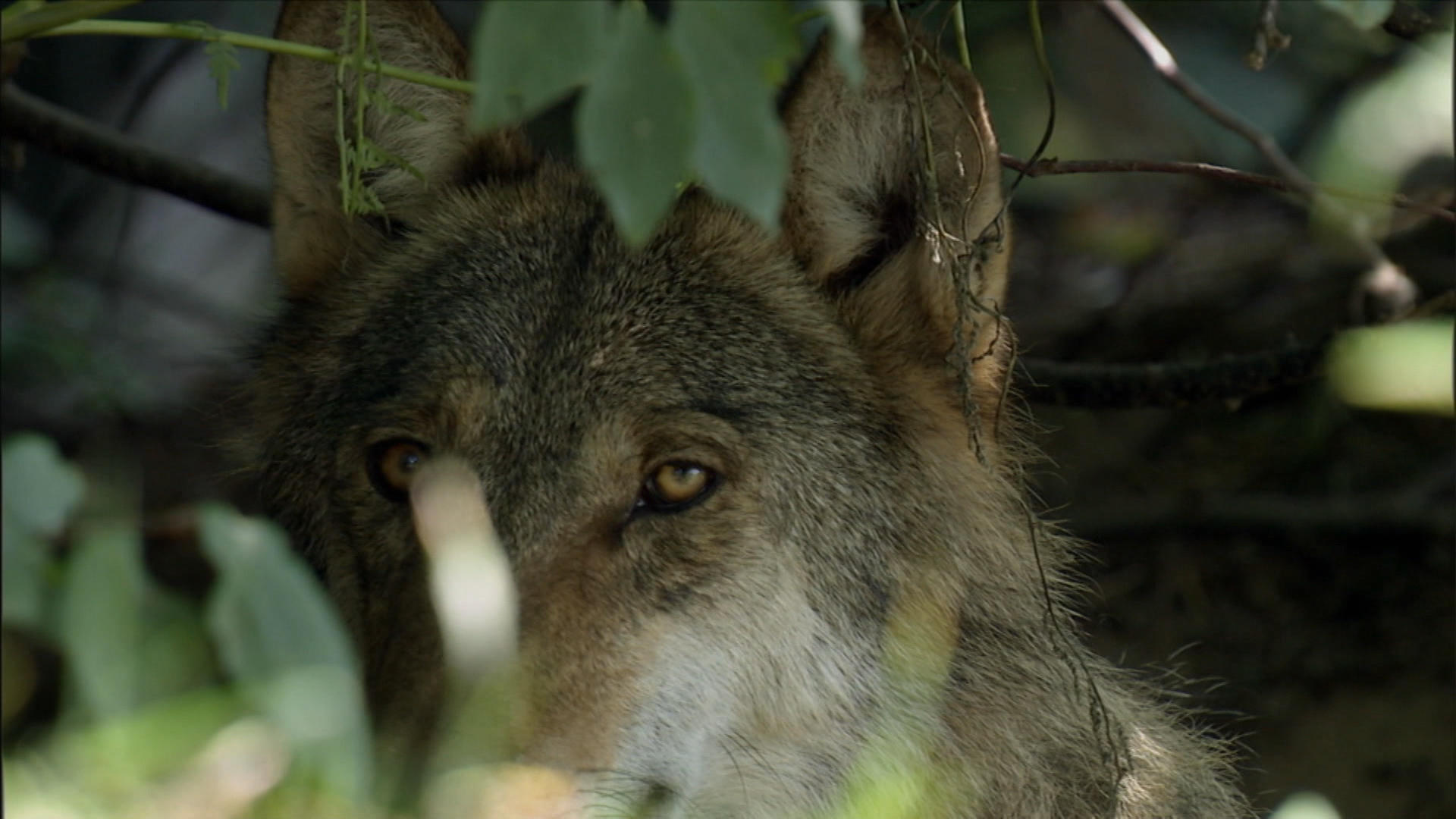
Swiss parliament agrees to loosen protected species hunting rules

Parliament has agreed to ease rules that regulate certain protected species, making it effectively easier to shoot wolves in the Swiss Alps.
On Tuesday, the Senate followed the House of Representatives by agreeing that cantons, after consulting with the Federal Office for the Environment, will be able to regulate the numbers of certain protected species in Switzerland.
The management of animals such as wolves, bears and lynx is hotly debated in Switzerland, with many farmers in areas with animal predator populations arguing that they should be allowed to kill animals that threaten their livestock. However, environmental activists and existing international agreements argue for the protection of predator species that have only recently made a comeback in the Alpine country.
Currently, wolves can only be killed if the local authorities issue a permit. This is usually done only if a wolf kills a certain number of livestock over a period of time. The predator, which returned to the country in the 1990s, is protected under the Bern Convention.External link
On Tuesday, however, the Senate loosened certain stricter hunting rules. It will still be necessary for such animals to present specific threats to humans before action is taken. But it will no longer be necessary for predators to have caused “considerable damage” to other animals or property, or for “reasonsable protection measures” to have been exceeded before the authorities are allowed to implement hunting regulations.
Under the changes, it should also be possible to kill a bear which repeatedly approaches a village or homes in search of food.
Environmentalists who criticized the changes have promised to launch a national referendum to combat the regulations.
CORRECTION: An earlier version of this story erroneously stated that wolves re-entered Switzerland in 2012.

More
Big, yes, but bad? Carnivore divides Swiss opinion

In compliance with the JTI standards
More: SWI swissinfo.ch certified by the Journalism Trust Initiative





























You can find an overview of ongoing debates with our journalists here . Please join us!
If you want to start a conversation about a topic raised in this article or want to report factual errors, email us at english@swissinfo.ch.